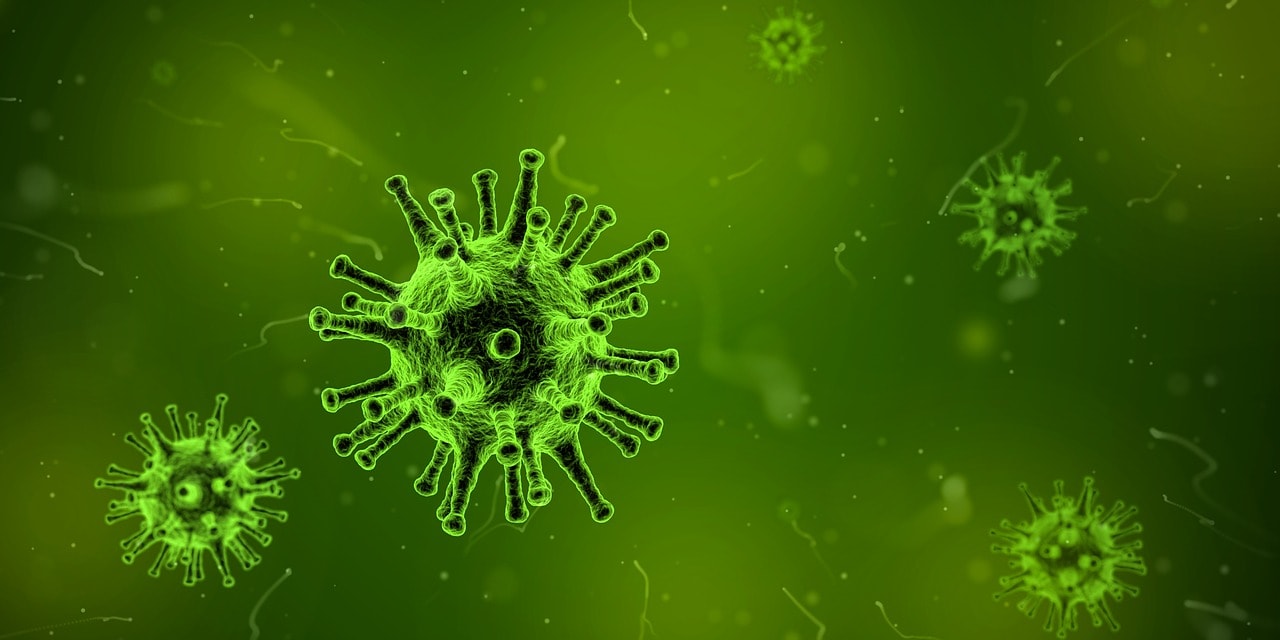7 Facts You Should Know about Genital Herpes
If you live in New York City or if you are going to visit it soon, don’t have sex. About 25% of adults living there carry genital herpes. It is good to be aware of these statistics so that you know how to conduct yourself while in New York City.
The percentage reaches about 50% of the African-Americans living in New York City and these numbers are official. You should not take anything for granted because government authorities have confirmed these details.
These statics would explain to you how common genital herpes is. It should be a warning sign for anyone who is visiting New York City for the first time. Make sure you monitor your sexual behavior so that you don’t carry genital herpes from the region.
Contents
The Most Common Type of Herpes in New York City
Type 2 herpes simplex is the most common. In New York City, 26% of adults carry herpes simplex type 2 while in the whole United States, 19% of adults carry it. This should be a worrying trend for anyone who cares about his or her heath.
I guess this New York example has explained my point which is how common genital herpes is. It is a prevalent situation that everyone needs to be aware of.
Before the rise of HIV, genital herpes was the most common sexually transmitted disease in the whole world. Now, it is the second most common after HIV.
Do you see how dangerous? How common, and how fearful HIV is? It was the same with genital herpes in the eighties. It means that people should be careful with the way they have sexual intercourse.
But why is genital herpes that dangerous? Because once you get it, it will stay with you forever. You also have to deal with the outbreaks that happen once a while. It is like the disease does not have a lasting cure. It is good to avoid it than getting into the trap of contaminating the infection.
I know that genital herpes is not as common as HIV and other diseases. However, this does not mean it is not common and not dangerous. It means that the other diseases are just more dangerous.
Here are some facts you should know about genital herpes that you need to know;
1. Genital Herpes Is Caused by Both Types of Herpes Simplex Viruses:
Most people think that genital herpes is transmitted and caused by herpes simplex type 2 only. However, herpes simplex type 1 can also cause the disease. It means that you need to avoid genital herpes regardless of the type.
Herpes simplex type 2 is usually transmitted through sexual contact while herpes simplex type 1 is transmitted orally through oral sex. The rest of the types of herpes simplex don’t cause genital herpes (There are 8 types of herpes simplex).
Avoid both sexual intercourse and oral sex with people you are not sure of their health. It is good to make sure that you are safe at all times. You should be responsible for your sexual actions if you want to stay safe.
2. Genital Herpes Is Extremely Dangerous:

Having genital herpes is one of the most humiliating and embarrassing conditions ever. The condition is dangerous to the extent that if the infected person touched the lesion then touched another body part, the lesion will be formed in the touched body part.
Women who have genital herpes can transfer it to their infants. Those infants can immediately die after birth from genital herpes. Therefore, it is a medical condition that we cannot look like a generation. It is very sad to lose a child upon birth because of genital herpes.
Also, genital herpes makes the immune system weaker over time. This makes the patient exposed to other dangerous diseases such as meningitis, hepatic diseases, and other sexually transmitted diseases including HIV.
Women also may be exposed to the risk of cervical cancer. It is good to engage in responsible sexing activities to avoid the occurrence of some of these things.
3. Genital Herpes Can Spread Easily:
The first route of transmission of genital herpes is the physical contact with the infected person. Therefore, you need to be careful when dealing with patients even though it may be hard to tell that the person is sick.
Direct sexual intercourse and oral sex are the most common routes of transmission. The disease can also be spread by skin to skin contact. Avoid coming into close contact with people that you don’t know. It is good to maintain a safe distance when interacting with other human beings.
Most people think that genital herpes is spread by people who know that they have the infection. However, the fact is it is spread by people who are classified as carriers of the disease. Someone may spread this infection without even being aware.
Many people carry the virus and they are not aware of it. These people are the real danger when it comes to the spread of this infection. They don’t have lesions so they don’t even know that they have herpes yet. It is easier to deal with a person who knows that he has the infection than the one who is not aware of.
4. The Symptoms Vary:
If you have any kind of lesions, it is better to get checked immediately especially if you are active sexually. The period between getting infected and the appearance of the symptoms vary. Sometimes, it takes days and sometimes, it takes years.
The first outbreak is usually severe. However, in some cases, it can be mild and pass without noticing that it is a herpes infection.
There is a difference between the symptoms that appear because of primary infections and recurrent infections.
Primary (Initial) Infections:
The symptoms include:
1. Blisters that burst after a while. They leave open sores in the affected areas such as the genitals, anal area, thighs, and buttocks.
2. If the blisters burst on the cervix of women, it will leave ulcers.
3. Unusual Vaginal Discharge.
4. Painful Urination.
5. Body aches, Fever, Headache, and Malaise.
6. Recurrent Outbreaks of Infections.
The symptoms of recurrent outbreaks are usually shorter and less severe than the symptoms of primary outbreaks. This is because your body develops an immune response to the virus.
In addition to the previous symptoms, recurrent attacks are characterized by symptoms like tingling, itching around the lesions especially the lesions around the genitals, and the reappearance of blisters.
New blisters may appear around the pelvic area and re-opening of the ulcers around and on the cervix may happen.
5. Herpes Is a Permanent Disease (For Now):
We are in 2019, yet there is no cure for genital herpes. Once you have a herpes infection, you will not get rid of it. It is one of the saddest realities that humankind needs to live with.
If you suspect that you have herpes, you should do a blood test immediately. The doctor should withdraw fluids from the lesions and test to confirm whether you have herpes or not. The test is not as complex as long as you are dealing with the right medical practitioner.
The problem is the virus doesn’t die. It remains alive in the root of any nerve and becomes active again once a while. It tells you that the symptoms nearly resemble those of HIV infections. Once you get the disease, you will live with it for the rest of your life.
Studies say that it becomes active due to some types of stress. The doctor will give you a list of things that you should avoid to prevent the virus from getting activated again. However, there is no permanent cure for genital herpes. The best treatment is to avoid getting the disease in the first place.
However, recent evidence suggests that there is a possibility of curing this STI. The research suggests gene therapy is a possible cure for herpes. With the currently prescribed antiviral medications, soon, the therapy will be the go-to cure for genital herpes.
In addition, scientists are also studying the potential vaccines that can be effective against genital herpes. However, as per the latest reports, a vaccine for herpes has not yet received approval from the FDA.
6. Herpes Can Be Managed:
There is no medication that is capable of making herpes disappear. However, there are some medications that make the condition less severe. You can use some of these medical products to manage the situation.
Antiviral drugs (acyclovir (Zovirax), famciclovir (Famvir), and valacyclovir (Valtrex)) help patients to make the period between the outbreaks longer and to make the symptoms less severe and shorter than usual.
Your doctor is in a better position to prescribe the drugs that will serve you best depending in the intensity of the infection and your level of immunity. The good thing is that the condition can be managed even if it is not curable.
7. Spreading the Infection Can Be Avoided:

Well, it is better to stay celibate but since this solution is kind of difficult, here are some tips that should be followed.
• Decrease the number of sexual partners. Genital herpes is not common in communities that believe in monogamy. Reducing the level of sexual intercourse will minimize the level of infection.
• Use condoms and all kinds of safety during sexual intercourse. Avoid Oral sex too. It will make sure that you don’t expose yourself to unnecessary risk.
• Your partner should be checked before having sex and regularly during your relationship. Knowing the status of your partner will help you to remain safe at all times.
Conclusion
From this discussion, it comes out clearly that genital herpes is a deadly viral infection. The main courses are sexual intercourse and oral sex. Make sure you understand the status of your partner before engaging in sexual activities. Besides, it is important to put on protection like condoms when engaging in sex. Remember this condition is not treatable and what doctors do is to just manage it. Therefore, it is safer preventing its infection in the first place.
FAQs
1. Can I Live A Normal Life?
Taking the proper precautions is necessary for you to control the symptoms and the frequency of episodes. Living a normal life is possible with herpes, provided you take the proper steps to control the spread of the virus. These include using condoms during sexual intercourse and avoiding physical contact with someone who displays symptoms of herpes.
2. Do Genital Herpes Go Away?
Unfortunately, there is no cure for genital herpes. However, the symptoms can be cured easily. Antiviral medication helps speed up the healing process and reduces the severity of the next episode. The outbreak can be shortened this way, which reduces the chances of spreading it to healthy individuals.
3. Is Genital Herpes Dangerous?
The ‘fear’ surrounding this condition is mainly from the lack of knowledge or incomplete understanding. The cure for this sexually transmitted infection is not yet present. Thus, it isn’t easy to judge how this can be cured.
This condition’s ‘dangerous’ factor is the pain caused to the person experiencing it. The genital ulcers that are characteristic of this STI can be severe.
4. How To Know If I Have Genital Herpes?
Usually, the health care provider is generally entrusted with detecting genital herpes. However, there are a few signs which let you know it’s time to see the doctor. These include body aches, fever, swollen glands, and blisters around the genitals, mouth, or rectum. The flu-like symptoms with the blisters appear for the first outbreak.
5. How Long Does Genital Herpes Last?
The area where the sores occur will be swollen and tender for some time, with a stinging or burning sensation for two to four weeks. The first outbreak is usually observed for the same period, which can eventually lessen with time and antiviral medication.
6. Is It Safe To Have Sex?
It is best to avoid not gifting your partner this virus. Skipping all sexual contact is best when you have herpes sores, and when the sores have disappeared, it is best to wait for a couple of days before you engage in any sexual activity. It is advised that you use a condom when you are sore-free.
Read Also:
- How to Get Rid Of Foot Odor
- Benefits of Yoga and Tips for People with Disabilities
- How To Get Longer, Thicker Lashes Without Professional Eyelash Extensions




HOW DR EDIDIA CURE MY HERPES INFECTION HIS HERBAL MEDICINE IS VERY POWERFUL TO CURE ANY DEADLY ILLNESS MORE INFORMATION WEB/SITEhttps://dredidiaherbalhome.wixsite.com/dredidiaherbalhome this is unbelievable i have be suffering for Herpes Infection Dr.Edidia who helped me in my life, i want to inform the public how i was cured from Herpes Infection by Dr.Edidia,i visited different hospital but they gave me list of drugs like Famvir, Zovirax, and Valtrex which is very expensive to treat the symptoms disease and never cured me. I was browsing through the Internet searching for remedy on Herpes infection and i saw so many blogs comment… Read more »